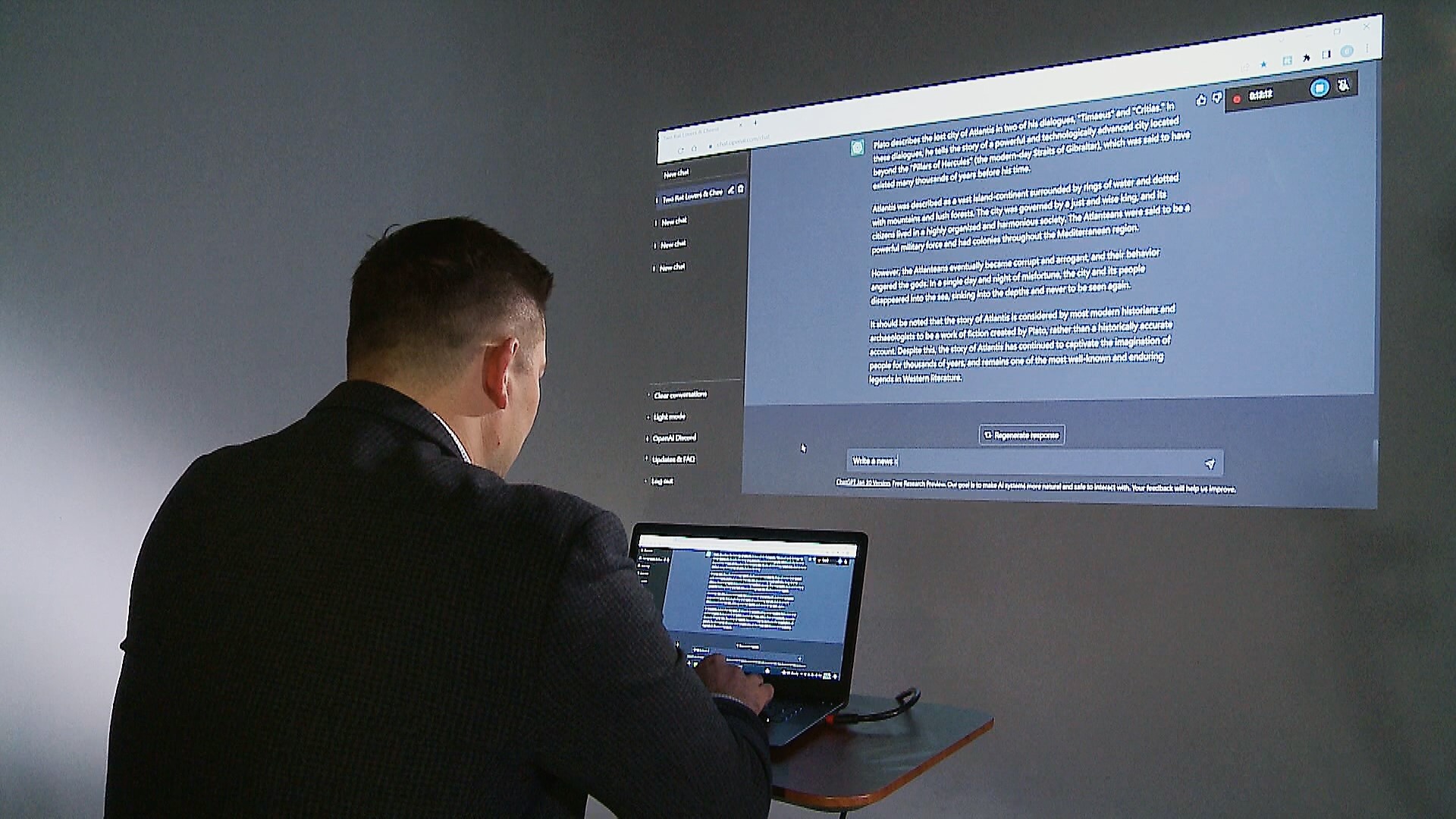MINNEAPOLIS — We’ve seen the movie before — artificial intelligence sounds and acts like a human but has superhuman capabilities.
Suddenly, this sci-fi, tech tipping point is here...at least the prototype.
In November, San Francisco-based OpenAI launched its latest version of the chatbot called ChatGPT (the GPT stands for Generative Pre-trained Transformer). Within two months, the program had 30 million users, according to The New York Times. By contrast, it took Instagram about a year to get 10 million users.
This chatbot can converse like a human. It can write original poetry, essays, computer code and much more, all as if it were human. Not only can it handle mundane questions like Siri or Alexa, but it also computes deeply thoughtful answers to complex questions, which has impressed literary scholars.
When asked what industries this type of AI could disrupt, David Nguyen, the Edson W. Spencer Chair for Innovation and Entrepreneurship at the University of Minnesota, replied, “I don't know. Possibly all.”
ChatGPT is not alive. It doesn't feel or think. Coding experts say it's pattern matching. When you give it a prompt, the app scrubs through all the data and literature it's been given, weighing the most appropriate answer word by word, and mimics the way a human would write it.
Not too different from the way your smartphone guesses the next word you want to write in a text, but on a much higher computational level.
“When you think about chatbots like, ‘Hey Chris, how's it going? You want to do this?’ We text back and forth. But with ChatGPT, you can ask it things like, ‘Write me a 600-word essay on the nature of life,’ and it will do it,” said Nguyen.
In recent months, media company CNET revealed it used AI to write a bunch of financial news articles, but they were plagued with errors and plagiarism that needed heavy human editing, according to the company.
Buzzfeed announced its intent to use AI for personalized quizzes and other content.
At the same time, all public schools in New York City banned ChatGPT from school devices and Wi-Fi networks.
But instead of shunning it at the University of Minnesota, law school professors put it to the test. They gave ChatGPT four law exams comprising 95 multiple-choice questions and 12 essays, and then they blindly graded the tests.
It made mistakes, the professors said, but passed all four exams, with a C+ average.
“There were no typos, perfect grammar, a solid organization,” said John Choi, an assistant professor at the U of M Law School. “What did it do poorly on? Generally, what we think of as core legal skills. So, the ability to spot potential legal problems. The ability to do deep analysis. Those kinds of things ChatGPT really struggled with.”
Across the river at the U’s school of journalism, professor Scott Libin started making assignments more specific. There’s talk among faculty of even bringing back handwritten assignments because of ChatGPT, he said.
“[Students] are talking about it; not so much to me,” said Libin. “In teaching, I think part of the response has to be to craft assignments with a little bit more sophistication.”
"What's ChatGPT really capable of?" Sam Altman, CEO of OpenAI, asked in a tweet. "ChatGPT is incredibly limited, but good enough at some things to create a misleading impression of greatness. It's a mistake to be relying on it for anything important right now."
Artificial intelligence like ChatGPT appears to be able to answer almost any question you throw at it, but the real question moving forward is: How far are we willing to let it go?
Watch more local news:
Watch the latest local news from the Twin Cities in our YouTube playlist:

